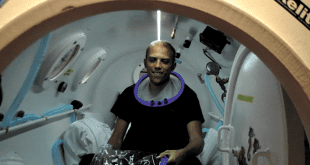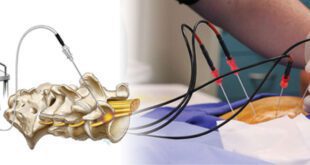By William A Cooper, DO
We see a high prevalence of osteoarthritis in obese patients due to wear and tear and pressure on the joints, including forces and friction. If patients can lose weight, they can reduce or stop the progression of arthritic damage.
Osteoarthritis (OA)
The biggest misconception for most patients is to rest their joints thinking they will heal, but in reality, people need to move and create activity and mobility, not immobility. This is essential for the joints; however, it should never be aggressive or strenuous motion.
There is structural and inflammatory arthritis. Osteoarthritis comes down to a loss of the cartilage of the overlying bones, which causes stress and angers the joint. It produces pain, swelling, and stiffness.
Osteoarthritis typically is an endpoint of post-traumatic injury, torn ligaments, genetic predispositions, or alignment issues.
Physical therapy is a first-line treatment that I personally take very seriously. I don’t rush patients into surgical procedures. We prefer to exhaust our conservative treatment options before surgical intervention is recommended. Conservative methods often can treat the area quite well depending on which joint has OA.
Conservative Treatment
• Physical Therapy
• Rest, but not immobilization.
• Corticosteroid injections
• Viscosupplementation Injections
• PRP (Platelet-Rich Plasma)
All injectables that I offer are ultrasound-guided, which allows me to see the precise area within the joint that I’m injecting the soliton into for precision medicine, which provides optimal outcomes.
Injectables
• Corticosteroids reduce pain and inflammation
• Viscosupplementation is a hyaluronic gel that can be lubricated and produce a cushion for the joint to glide against.
• PRP is taken from the patient’s own blood, spun down, and the platelet-rich plasma is injected into the joint. PRP has growth factors that are known to produce healing mechanisms and work very well in many joints, especially the knees, and for tendonitis or tendinopathy.
I’ve seen remarkable results for my patients.
Diet and Exercise
From a preventative standpoint, what can people do to prevent injury or re-injury? Generally, the most important angle is diet and exercise. Individuals who maintain a healthy weight and work out daily to keep their muscles strong and increase blood circulation and oxygen intake are in a better category than those who eat poorly and are more sedentary.
If patients have OA, they may not be able to work out at the same intensity they did prior to their injury or state, but I can’t stress enough the importance of moving; even if all you can do is a brisk walk, it’s critical for overall well-being and musculoskeletal health.
Diet is crucial for general health and is dependent upon the individual’s needs, belief systems, and preferences. I tell patients to avoid processed and refined foods and opt for a healthier diet to reduce inflammation.
Surgery
Surgical arthroscopy is minimally invasive and can be used to salvage cartilage and regrow cartilage. In my patient population, which is middle to elderly aged, I try every conservative treatment option first. Still, many times, due to the patients’ health or the severity of their OA, arthroplasty or partial joint replacement, or total joint replacement may be necessary to help them regain function and range of motion.
William A Cooper, DO
Board-Certified Orthopedic Surgeon
Dr. William Cooper is a board-certified orthopedic surgeon with BayCare Medical Group, serving the Trinity, Florida area. He completed his undergraduate degree in biology from Excelsior College in Albany, New York. Dr. Cooper earned his Doctor of Osteopathic Medicine from Nova Southeastern University College of Osteopathic Medicine in Fort Lauderdale, Florida. He continued his medical education by completing a surgical internship, followed by an orthopedic surgical residency at William Beaumont Army Medical Center in El Paso, Texas. Dr. Cooper provides compassionate, evidence-based orthopedic care to patients of all ages. As a veteran of the United States Army and United States Navy, Dr. Cooper’s military background gave him significant experience and skill in managing complex orthopedic sports injuries, joint reconstruction, and orthopedic trauma. Dr. Cooper performs numerous surgical procedures that include both robotic and traditional hip and knee replacements, with a particular focus on minimally invasive anterior hip and partial knee replacements. He is also proficient in arthroscopic management of knee and shoulder injuries, such as ligament reconstruction, rotator cuff repair and shoulder stabilization. Dr. Cooper has notable experience in operative and nonoperative fracture management. He also treats various hand conditions such as carpal tunnel syndrome and trigger fingers. He is affiliated with Morton Plant North Bay Hospital.
BayCare Medical Group Orthopedic Surgery
2102 Trinity Oaks Blvd., Suite 202
Trinity, FL 34655
To learn more about Dr. Cooper or to schedule an appointment please visit DrWilliamCooper.org or call (727) 372-4210.
 Central Florida Health and Wellness Magazine Health and Wellness Articles of the Villages
Central Florida Health and Wellness Magazine Health and Wellness Articles of the Villages



